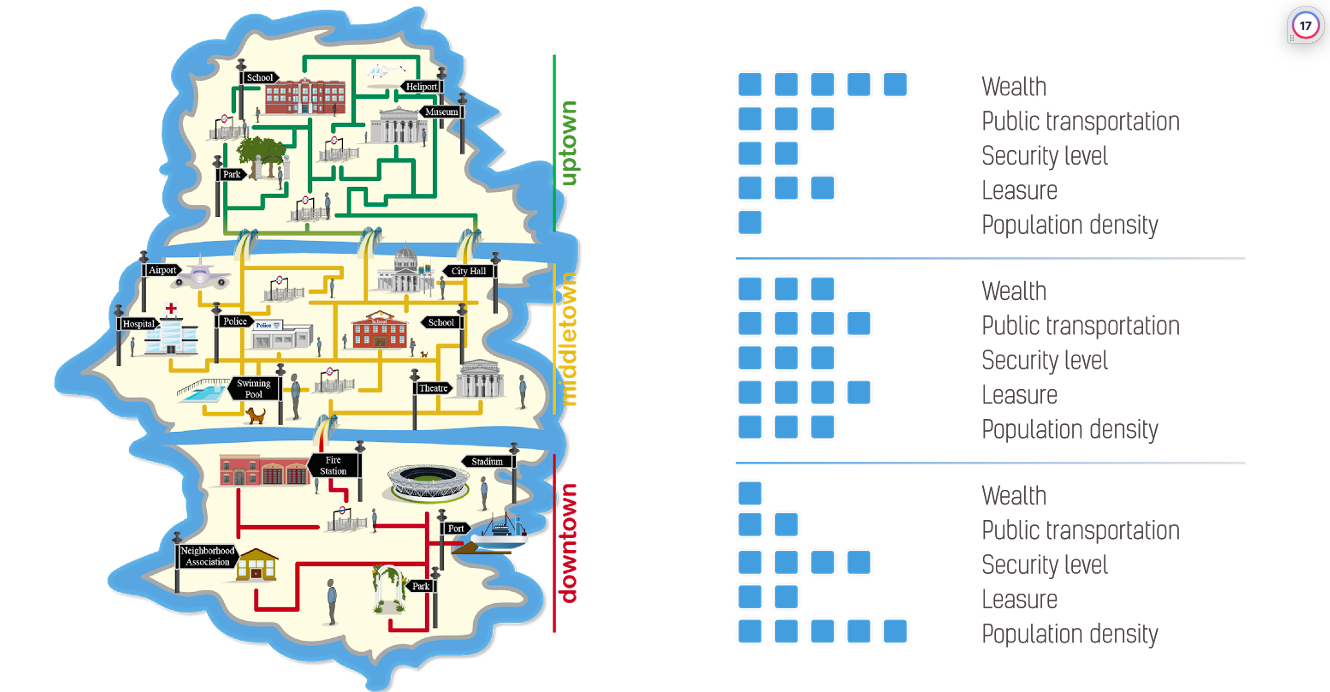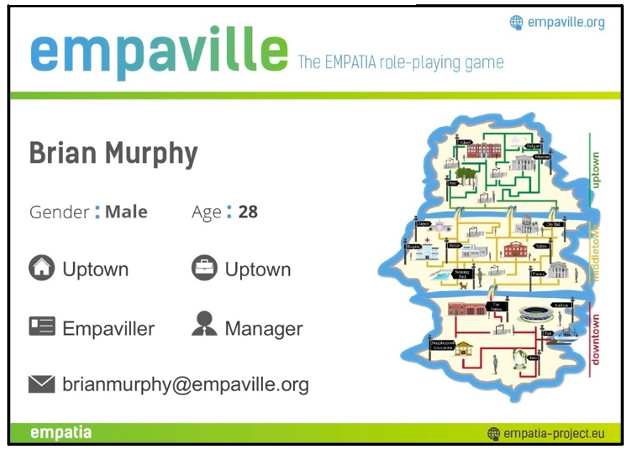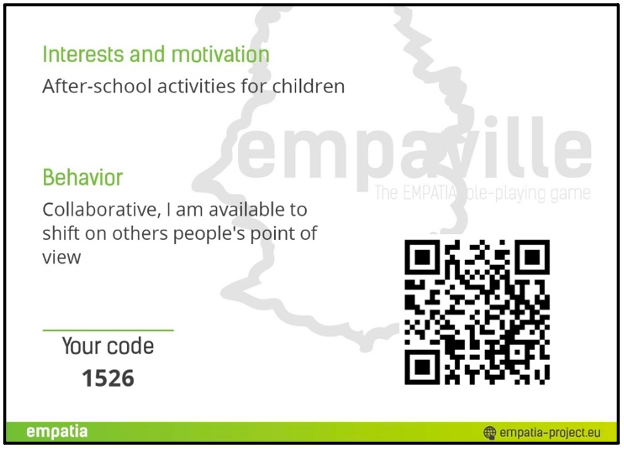Envisioning today the world of tomorrow
Empaville is a role-playing game that simulates a gamified Participatory Budgeting process within the fictional city of Empaville. It seamlessly integrates in-person deliberation with digital voting, drawing inspiration from actual Participatory Budgeting experiences. By incorporating gamification elements, Empaville aims to deliver an educational and critical experience regarding public participation, with a specific focus on complex environmental issues related to the European Green Deal.
The primary goal of Empaville is to foster a culture of public engagement and empower participants with essential tools to comprehend the benefits and challenges associated with Democratic Innovations and the use of technology in participation. Through the active involvement of participants in proposal development, Empaville encourages citizens to participate, promotes empathy, and provides policymakers with a clearer understanding of the participatory process.

What are its key features?
Empaville currently includes three versions:
- A traditional Participatory Budgeting role-playing game for a broad audience, including public officers, politicians, and citizens.
- Empaville for School, a simplified version designed for young people under 15, simulating Participatory Budgeting in a park setting.
- Green Empaville, a role-playing game gamifying the Green Participatory Budgeting experience.
In the adult versions, participants describe proposals, specify geographical locations, set budget ranges, and select categories. They engage in group deliberation, upload proposals, present them in a plenary session, and vote individually. The game introduces conflict generation within and between neighborhoods to explore conflict resolution in participatory processes.
Participants take on roles as Empaville citizens, using character cards to shape profiles and foster empathy. The simulation concludes with announcing winning proposals and a debriefing session.
The game accommodates 12 to 60 participants and is facilitated by a team of 3 to 5 members. A specific online platform developed by PHOENIX enhances the user experience (UX) during core game phases.



What can it be used for?
Empaville operates as an educational and participatory experience, drawing inspiration from real-life Participatory Budgeting processes while incorporating gamification elements. It serves as a dynamic arena where participants engage in discussions, formulate project proposals, and navigate the intricacies of democratic decision-making within a safe yet challenging environment.
Crafted with strategic versatility, Empaville finds applications across diverse contexts and targets distinct audiences. In essence, Empaville functions as a transformative tool that fosters civic engagement, teamwork, critical thinking, and a nuanced understanding of the challenges and benefits inherent in public participation and democratic processes.
The Green Empaville version further amplifies its impact by placing a particular emphasis on environmental issues, actively promoting sustainability through engaging gameplay.
Who can benefit from it?
Empaville caters to three distinct target groups:
1- Practitioners: This target group encompasses politicians, technicians, and public officers. The simulation aims to provide them with a firsthand experience of a participatory process, enabling them to actively participate rather than merely organise.
2- Citizens: The game equips individuals with an understanding of a Participatory Budgeting process, acquaints them with online participation platforms, and fosters empathy towards other social categories. In the Green Empaville version, there is an additional emphasis on raising citizens’ awareness of environmental issues.
3- Young people under 15: Empaville for School features simplified group dynamics. The goals for this target group include promoting civic engagement, fostering teamwork and collaboration, and developing critical thinking skills among young participants.
How has it been used by PHOENIX?
The Empaville game, particularly its green version, was developed as a gamified tool for the PHOENIX project consortium partners.
The game was strategically tailored for implementation in the pilot territories where partners operate, aiming to extend its impact beyond the project’s boundaries.
The game’s integration with the PHOENIX tangrams aligns with the preferences of local partners and the Territorial Commissions of Co-Design (TCCDs). Notably, the Empaville game proves suitable for both preparatory and dissemination phases.
The development of Green Empaville underwent extensive testing through research-action activities in the UK, Italy, and Morocco. The University of Southampton and OneSource conducted six game sessions involving over 150 participants, ensuring a comprehensive evaluation of its development and identifying opportunities for improvement.
Contact our partner to learn more!
For more information about this tool please contact
The University of Southampton.
Prof. Paolo Spada P.Spada@soton.ac.uk
Dr. Marco Meloni M.Meloni@soton.ac.uk
Follow us on: